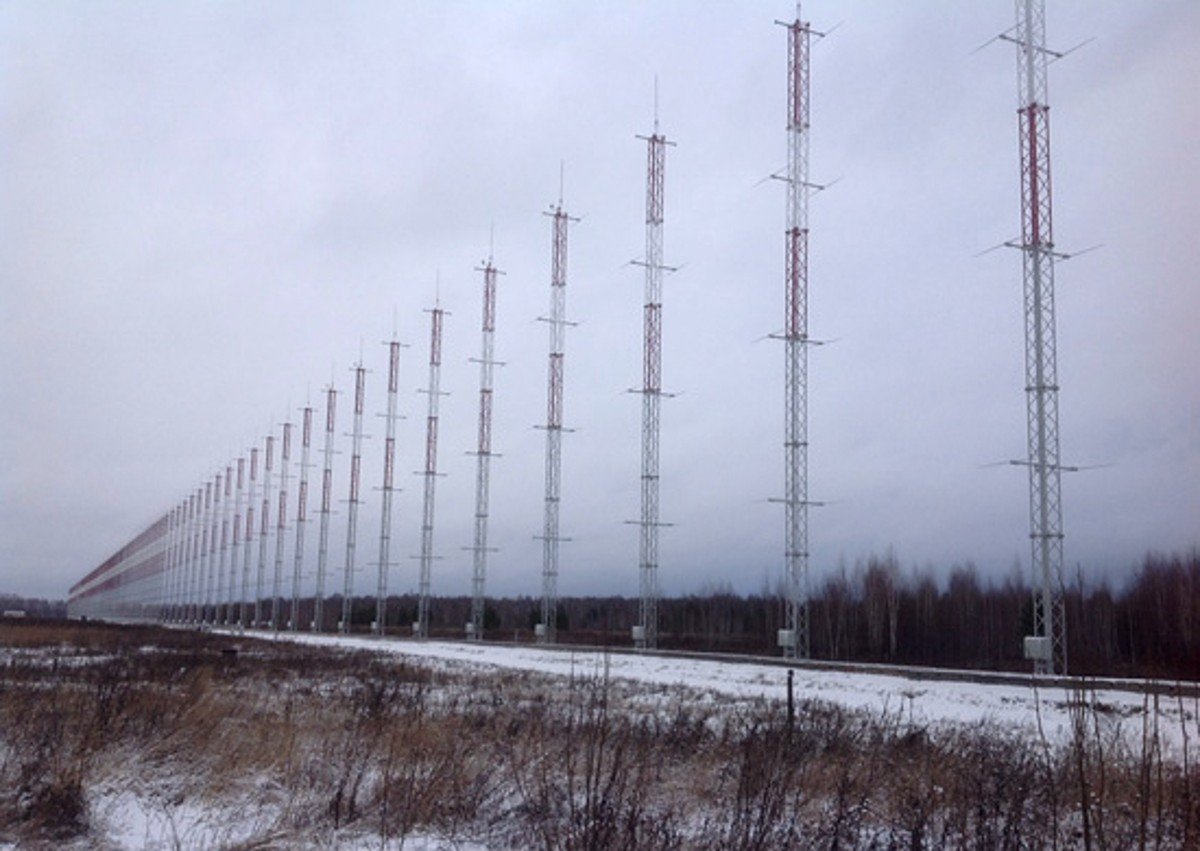Russia has lost a one-of-a-kind radar system, new information suggests, with both Ukrainian and Moscow sources reporting Kyiv had launched an attack hundreds of miles into Russian territory.
On Wednesday, Ukrainian media reported that Kyiv drones had struck a facility housing a 29B6 Container, an over-the-horizon radar in the Russian republic of Mordovia, citing sources in Ukraine's military intelligence agency. Russian and Ukrainian sources reported a previous Kyiv drone attack on the Mordovia facility on April 11.
On Wednesday, Artem Zdunov, the regional governor of Mordovia, said a Ukrainian uncrewed aerial vehicle had "again attacked an object in Mordovia" at around 8 a.m. local time (1 a.m. EDT). Russian air defenses shot down the drone, he said.

The VChK-OGPU outlet, which purports to have inside information from Russian security forces, said "the attack was successful and now the Russian over-the-horizon station is out of action." Newsweek has reached out to the Russian Defense Ministry and Ukrainian military intelligence agency for comment.
The unique 29B6 Container radar is part of Russia's early warning system for detecting incoming threats from thousands of miles away, such as long-range ballistic missiles. It can track the launches of cruise and hypersonic missiles and the take-off of aircraft from up to around 1,860 miles away, according to Russian state news agency Tass.
The radar was located in the town of Kovylkino, to the southeast of Moscow, several Ukrainian outlets reported. This is around 360 miles from the Ukrainian border.
The outlet said this radar was "the only over-the-horizon tracking radar of its kind." State media reported in early 2020 that a second Container radar was to be deployed in the Russian exclave of Kaliningrad, which is sandwiched between NATO members Lithuania and Poland on the Baltic Sea coast.
But Forbes described the Mordovia-based radar as Russia's only over-the-horizon radar directed towards the west, monitoring airspace around Europe, according to Forbes. It is worth $110 million, the outlet added.
"It will be extremely difficult to fill the gap" left by the radar's absence, the VChK-OGPU Telegram channel said.
Over-the-horizon radars use the Earth's ionosphere to bounce signals back, stretching detection around the planet's curvature. They have been used to detect potential threats far beyond the limits of conventional radar systems.
Russian and Ukrainian sources reported a previous Kyiv drone attack on the Mordovia facility on April 11. Russian independent news outlet, Astra, said two drones were shot down around the radar's location.
Russia's Defense Ministry said on April 11 that its air defenses had intercepted two Ukrainian drones over the Mordovia region, but did not specify further about the location or target of the drones.
The Container radar has been active in the Mordovia region since early December 2019, according to Tass.
Uncommon Knowledge
Newsweek is committed to challenging conventional wisdom and finding connections in the search for common ground.
Newsweek is committed to challenging conventional wisdom and finding connections in the search for common ground.
About the writer
Ellie Cook is a Newsweek security and defense reporter based in London, U.K. Her work focuses largely on the Russia-Ukraine ... Read more
To read how Newsweek uses AI as a newsroom tool, Click here.








